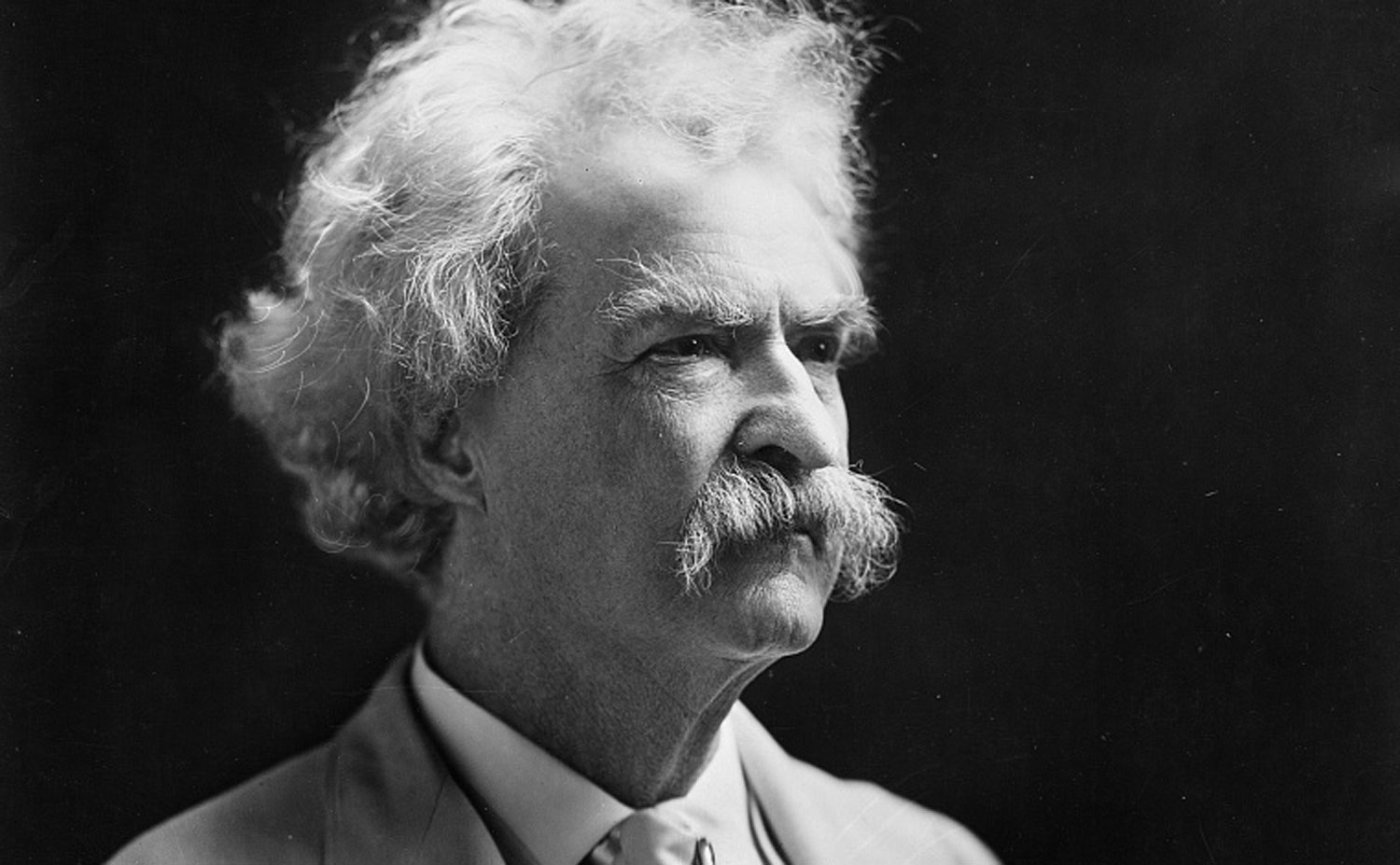 Recently I had the opportunity to visit Mark Twain’s House in Hartford, CT. This is the home where he lived from 1874 – 1891, the time he referred to as the happiest and most productive phase of his life. The tour starts out in the foyer (beautiful, interesting), then moves to the parlor (designed by Louis Comfort Tiffany and Associated Artists), dining room – all made more interesting by the stories being told by the docent as you walk through each room.
Recently I had the opportunity to visit Mark Twain’s House in Hartford, CT. This is the home where he lived from 1874 – 1891, the time he referred to as the happiest and most productive phase of his life. The tour starts out in the foyer (beautiful, interesting), then moves to the parlor (designed by Louis Comfort Tiffany and Associated Artists), dining room – all made more interesting by the stories being told by the docent as you walk through each room.
Nothing in the house compares to the moment when you see his desk. Not even the gas line he had installed that runs from from the ceiling light to his bed side lamp so he could read in bed. The desk is tucked up on the third floor next to the pool table. You can see him sitting there writing his most famous works. I dare any public speaker not to feel the pull of history and jolt of inspiration when you lay eyes on it.
Since then I’ve been trying to keep the creative juices going. I keep wondering what he  would have to say today about the art and craft of the spoken word. We know this: he was a big fan of word choice. Twain famously said, “Use the right word, not its second cousin.” He also said, “Eschew surplusage,” which I hope to write about once I learn what it means.
would have to say today about the art and craft of the spoken word. We know this: he was a big fan of word choice. Twain famously said, “Use the right word, not its second cousin.” He also said, “Eschew surplusage,” which I hope to write about once I learn what it means.
How much time does the average presenter spend thinking about word choice? If my executive MBA students are a good barometer of workplace presentations, not very much. When I asked my students this question, they all explained that data and analysis are more valued so they put time and effort into those aspects of their presentations.
That’s time well spent if your goal is to inform or to update. But if your goal is to inspire, motivate, or persuade, then word choice really matters. Here’s an easy exercise: the next time you have a high-stakes presentation coming up, give your remarks to a trusted colleague, and ask him or her to sift through it for jargon or any $1.50 words where a 25-cent one would do.
Your words represent who you are. Do you want to sound self-effacing or powerful? Eccentric or eloquent? Folksy or charming? The place to start is with word choice. After all, as Twain explains: ” The difference between the right word and almost the right word is the difference between lightening and a lightening bug.”
– Barbara


